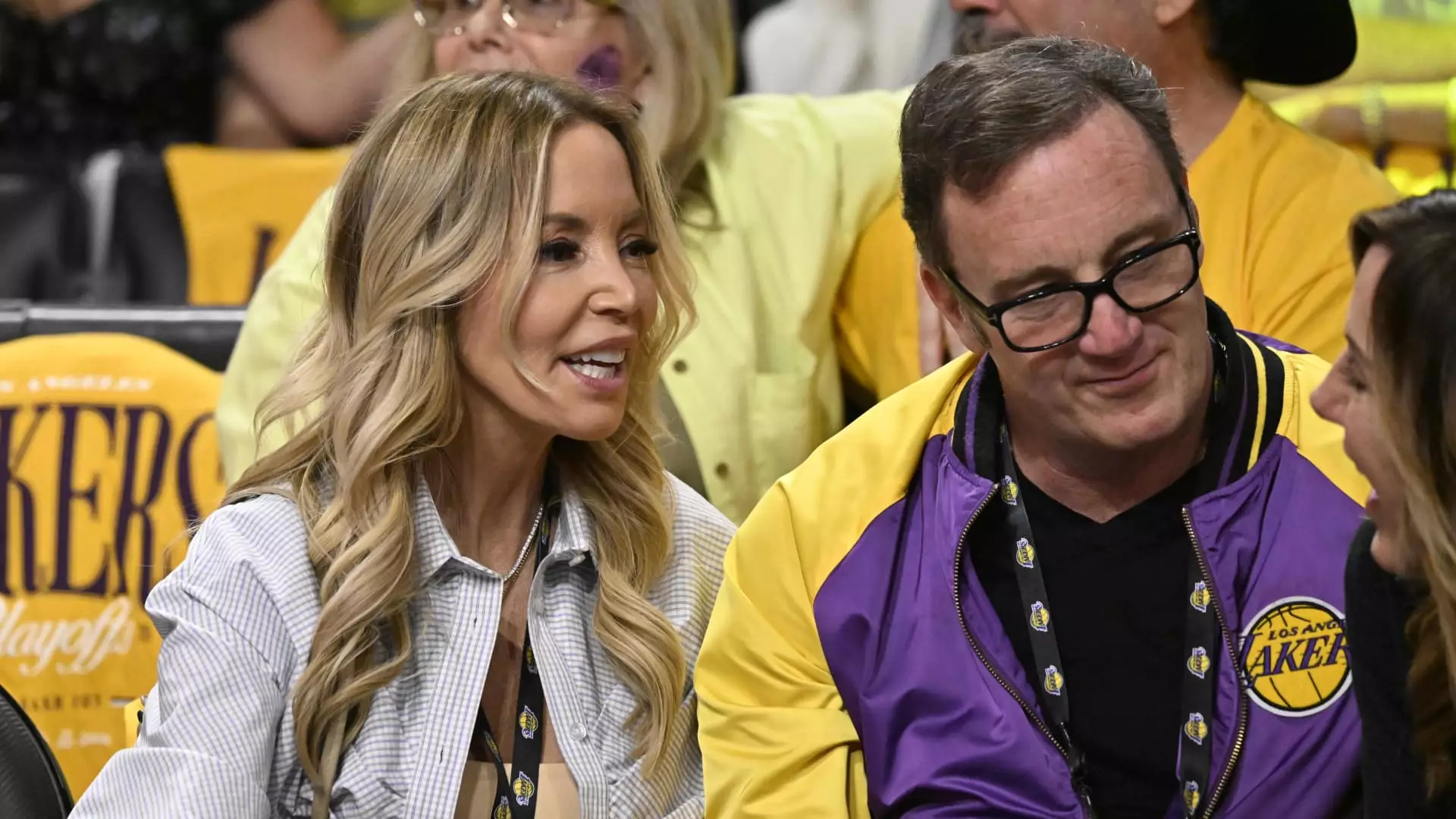In a staggering turn of events, the Buss family is poised to sell a significant portion of the iconic Los Angeles Lakers to Mark Walter for an unprecedented $10 billion. This monumental transaction, should it proceed, will not just set a record for the NBA but also redefine how we perceive the value of sports franchises. Historically, teams like the Lakers have operated on a financial plane that was already ridiculous by most standards, but now we stand on the brink of a valuation so high it could alter the dynamics of ownership in professional sports.
The implications of such high valuations are profound. It creates an environment where financial muscle comes before sporting prowess, often privileging teams with deep-pocketed owners over traditional competitive spirit. While the allure of the Lakers continues to thrive, one has to wonder if the franchise’s legacy is at risk of being overshadowed by the sheer commercialism that dominates the modern sports landscape.
The Legacy of Jeanie Buss: A Custodian of History
Jeanie Buss, who has presided over the Lakers since her family bought the franchise in 1979 for a mere $67.5 million, will keep a minority stake in the team along with her governance role. This arrangement presents a unique dynamic that marries tradition with modern business acumen. While many might see Walter as an emblem of the new wave of sports billionaires, Buss’s ongoing influence ensures that the storied past of the Lakers—a history infused with titles and superstars—will still be a guiding force.
Her ability to negotiate such a deal, after years of crafting the Lakers’ brand, speaks volumes about her understanding of both the emotional and economic value of her family’s legacy. It is not just about ceding ownership; it’s about ensuring that the core values of the franchise remain intact in the hands of someone who seemingly respects its history.
Mark Walter: The New Face of Lakers Ownership
Walter, who already has his fingerprints on multiple sports franchises, is certainly a qualified buyer. Owning the Los Angeles Dodgers, the WNBA’s Sparks, and a stake in the future of Formula 1, Walter embodies the archetypal modern sports mogul. But one must question whether financial expertise can replace the emotional quotient that prior owners had. Is it sufficient merely to have the capital if one lacks the loyalty to the sport and community that the Lakers represent?
Magic Johnson’s endorsement of Walter as the right guy to carry the Lakers’ legacy certainly adds credence to Walter’s ability to uphold the brand’s tradition of winning. However, there looms an underlying question: Does the heavy financial hand of a businessman equivalent to a suitable caretaker of such a beloved sports institution?
The Broader Implications of Rising Valuations
As NBA valuations swell, fueled by lucrative media rights deals, one cannot ignore the potential fallout. The sale of the Lakers not only exemplifies glowing individual franchise success but also casts a shadow over the grassroots aspects of the sport. Will an increase in commercialized interests dilute authentic fan experiences? Records like these might lead to a lopsided distribution of wealth within the league, making it harder for smaller teams to compete and innovate.
Attention must be paid to how these transactions affect the overall integrity of the game. Are we moving towards a model that favors financial elite over true athletic competition? As Lakers fans and NBA enthusiasts, we ought to approach this new chapter with cautious optimism, critically examining who truly benefits from such monumental transactions.

